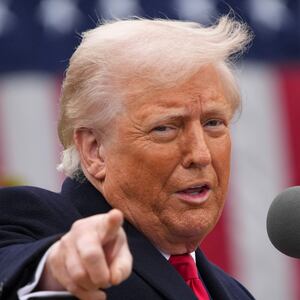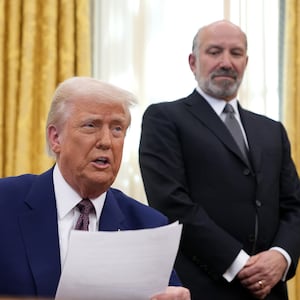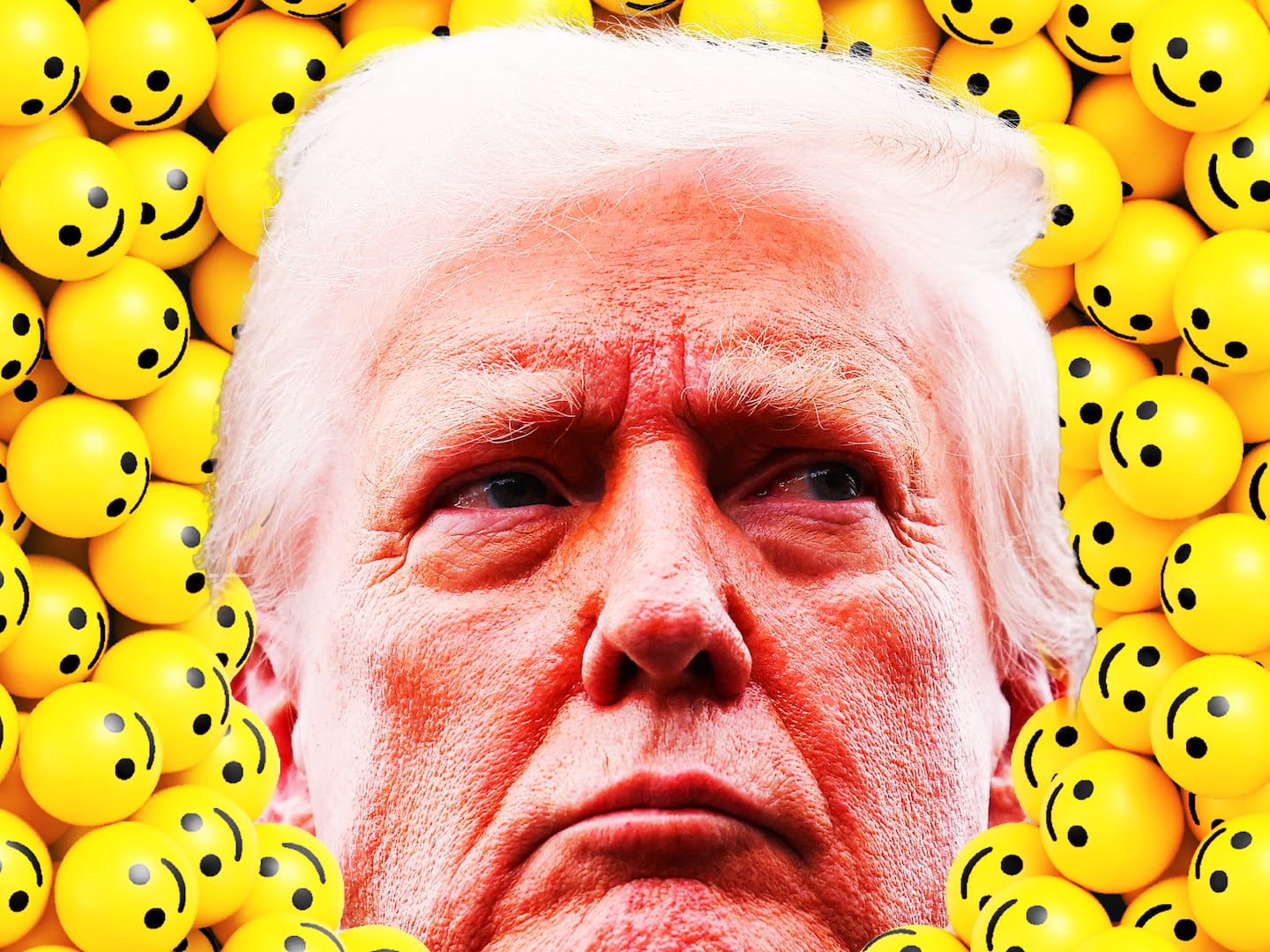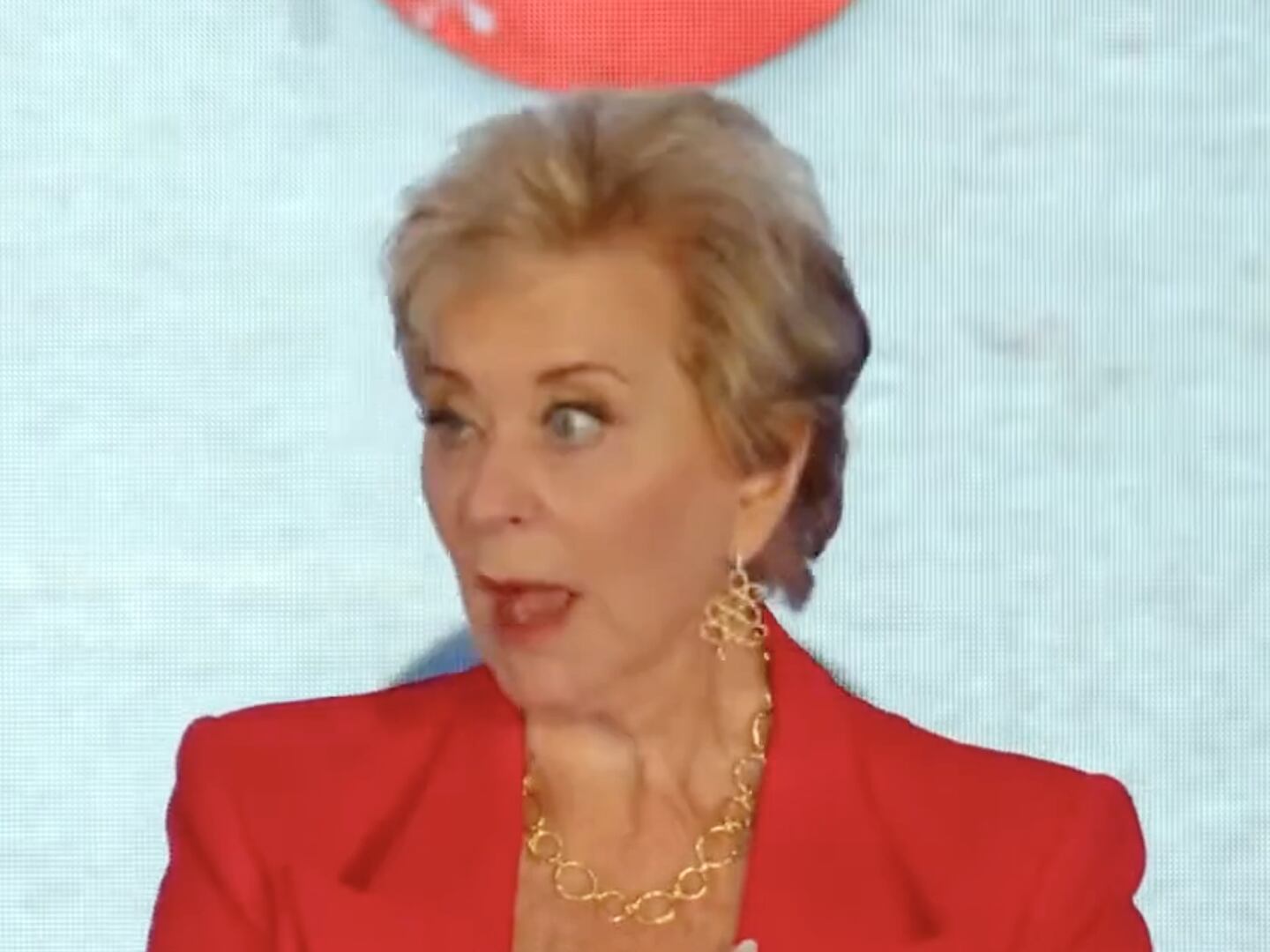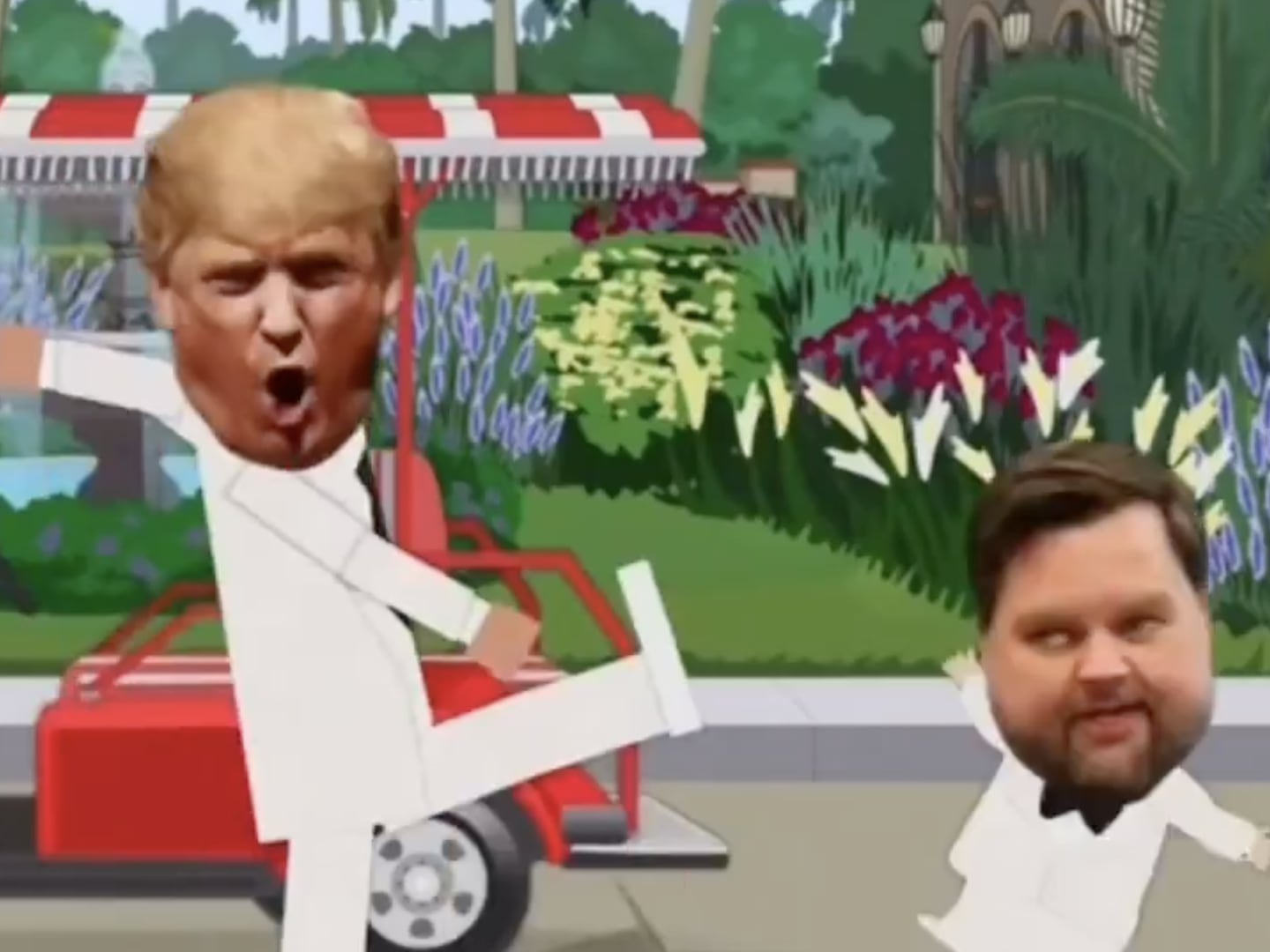China is refusing to back down in the face of President Donald Trump’s threat to impose even higher tariffs on Chinese products, vowing to “fight to the end” of the escalating trade war between the world’s two largest economies.
“If the U.S. proceeds with implementing these escalated tariff measures, China will resolutely take countermeasures to safeguard its own rights and interests,” a spokesperson for China’s Commerce Ministry said Tuesday. “If the U.S. insists on going its own way, China will fight to the end.”
The ministry also called Trump’s threat to escalate tariffs against China “a mistake on top of a mistake” which exposes “the American side’s blackmailing nature,” according to Reuters.
ADVERTISEMENT
Last week during his “Liberation Day” tariff announcement, Trump announced a 34 percent import tax on all products from China. That was on top of a 10 percent duty he’d already levied on Chinese products, a 10 percent universal tariff on all imports, and several sector-specific tariffs.
Trump said he would consider lowering the tariffs—an import tax paid by American companies, with the costs typically passed on to consumers—if other countries “negotiated” to try to lower their trade deficits with the U.S.
But China responded Friday by announcing a reciprocal 34 percent tariff on American imports.
“If that tariff isn’t removed by tomorrow at 12 o’clock, we’re putting a 50 per cent tariff on above the tariffs that we put on,” Trump said Monday. “They’ve become a rich country . . . I have great respect for China, but they can’t do this.”
That would bring duties on Chinese imports to more than 120 percent, according to the Financial Times. The escalating trade war had already sent markets into a tailspin on Friday, wiping out $5 trillion in value in U.S. stocks over a two-day period.
Asian stocks also plummeted, but unlike the U.S., Beijing has taken counter-measures to try to rally its markets.
Since March, it has been rolling out new stimulus measures in response to a potential trade war, and on Tuesday, it fixed its currency’s exchange rate at its lowest rate since September 2023, signaling that it could use depreciation to offset the tariffs, according to the FT.
Also on Tuesday, financial regulators and state fund managers vowed to support the country’s stock market, and several Chinese companies announced share buybacks.
The Trump administration, meanwhile, has coupled the tariffs with massive federal employee layoffs, funding freezes, and attempts to cancel hundreds of billions of dollars in existing government contracts, all of which are expected to weigh on the economy.
Administration officials can’t even keep their stories straight on whether the tariffs are a short-term tactic to bring countries to the negotiating table or a long-term solution to create jobs in the U.S.
Commerce Secretary Howard Lutnick said the tariffs will lead to “trillions of dollars of factories” being built in the U.S., but the administration’s other actions are directly undermining that stated goal.
Elon Musk’s so-called “Department of Government Efficiency” is trying to gut former President Joe Biden’s signature pieces of legislation—the 2022 Inflation Reduction Act and 2022 CHIPS and Science Act—which invested hundreds of billions of dollars in boosting domestic manufacturing for strategic sectors.
A day before Trump’s “Liberation Day” announcement, the administration told members of Congress it was cutting funding to the Manufacturing Extension Partnership, a government program that helps small American companies manufacture in the U.S., Wired reported.
The Commerce Department agency that oversees the manufacturing program “is reprioritizing its programmatic activities to ensure that the US secures its position as a leader in critical and emerging technologies such as artificial intelligence and quantum,” according to an email announcing the cuts.
The U.S. currently enjoys a $25.2 billion service surplus, according to NBC, and has a global advantage in the knowledge economy. But more money allocated to manufacturing consumer goods means less money to invest in cutting-edge technology, software, business products and other intellectual property innovations.
On Monday, Chinese officials urged the U.S. to back off of Trump’s tariffs by appealing to the country’s self-interest, using the words of then-President Ronald Reagan of all people.
The Chinese Embassy in Washington, D.C., posted a video of the one-time conservative hero saying that tariffs offer a “quick political advantage” but “risk America’s [long-term] prosperity for the sake of a short-term appeal to some special interest group.”


